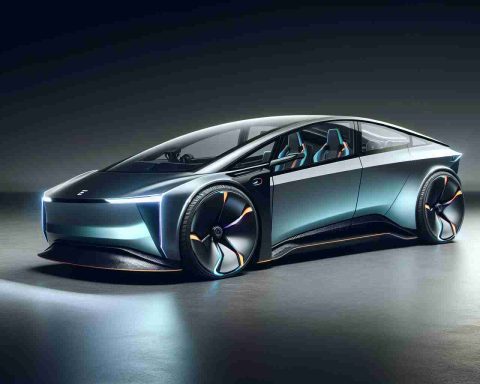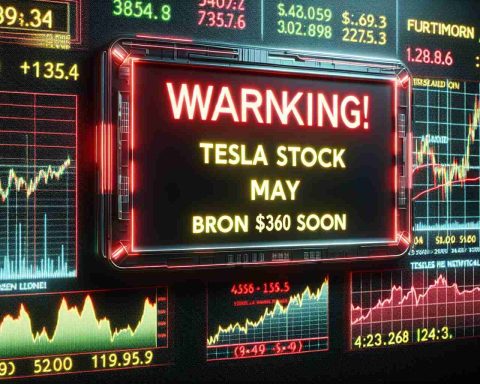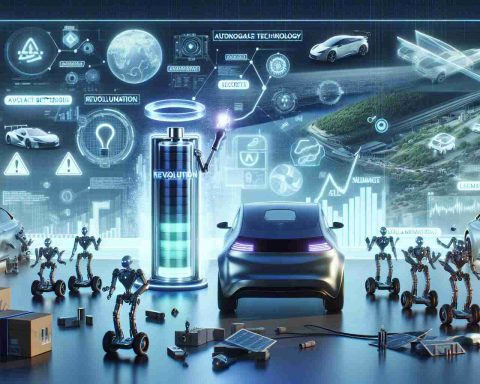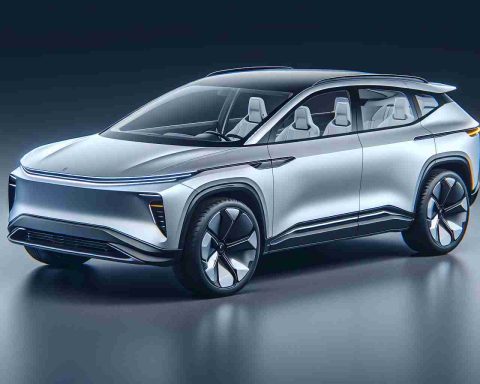Dealer Optimism Amid Challenges
In a surprising turn of events, auto dealers are showing remarkable optimism regarding the potential impacts of President Trump’s administration on their businesses, particularly as it pertains to electric vehicles (EVs). Many industry leaders believe that the current leadership will usher in beneficial changes that will alleviate pressure on EV sales and stimulate consumer spending.
A significant 64% of franchise dealers feel confident that the new administration will bring positive business outcomes, despite concerns over increasing tariffs that may affect vehicle pricing. This sentiment reflects an overall boost in dealer morale, as evidenced by improved consumer attitudes in showrooms across the nation.
Although there’s trepidation surrounding tariffs on imports from Canada and Mexico, with nearly 70% of dealers anticipating negative effects on sales, they remain hopeful that automakers will take measures to mitigate these costs. The sentiment that consumers are tightening their spending, paired with rising transaction prices, places additional pressure on the industry.
Interestingly, while many dealers have invested heavily in EV infrastructure, such as charging stations and technician training, there’s a growing belief that the push for EVs may not align with customer interests. About two-thirds of dealers report a lack of consumer interest in electric vehicles, pushing some to question the long-term viability of their substantial investments in that sector. In a challenging marketplace, the path forward for EVs remains uncertain as traditional dealers adapt to shifting economic conditions.
Renewed Dealer Perspectives and Broader Implications
The optimism expressed by auto dealers offers a lens through which the broader implications of evolving automotive policies and consumer trends can be examined. As the industry tentatively embraces a shift toward electric vehicles (EVs), the potential socio-economic impacts are profound.
Consumer behavior and market dynamics are at the forefront of this evolution. The hesitance of consumers towards EVs may signify a broader cultural resistance to rapid technological change, complicating the industry’s pivot. As only one-third of dealers report consumer interest in EVs, businesses may need to navigate a delicate balance between environmental responsibility and market demand. This disconnect could hinder cultural acceptance of sustainable transportation solutions, raising questions about the future of EV adoption.
Moreover, the potential effects on the global economy are significant. Tariff fears could lead to raised vehicle costs, disproportionately affecting lower and middle-income consumers. This not only risks alienating a crucial segment of the market but also creates a trickle-down effect on automotive jobs, as sales may stagnate in a tightened economic landscape.
Looking ahead, the industry must confront the environmental consequences of its decisions. While the push for EVs is a step toward reducing carbon emissions, reliance on fossil fuels for electricity generation, particularly in regions without substantial renewable resources, complicates the positive impact.
Ultimately, the path forward depends on how quickly dealers can pivot to consumer preferences while maintaining their commitments to sustainability in an evolving economic climate.
Revving Up: The Shifting Landscape of Auto Dealerships in the Age of EVs
Dealer Optimism Amid Challenges
The auto industry is undergoing a transformative phase, spurred by increasing attention to electric vehicles (EVs) and evolving consumer preferences. Despite some challenges such as tariffs and consumer spending habits, auto dealers are expressing unexpected optimism about their future.
# The Current Climate of Dealer Confidence
A recent survey indicates that 64% of franchise dealers expect the new administration to create beneficial business conditions. This optimism is particularly poignant given the uncertainty surrounding tariffs on imported vehicles from neighboring countries like Canada and Mexico. Almost 70% of dealers are bracing for adverse effects on their sales due to these potential tariffs, yet they’re holding onto hope that manufacturers will introduce strategies to buffer the impact, such as absorbing costs or adjusting pricing strategies.
# Investment in EV Infrastructure: A Double-Edged Sword
Many dealers are investing significantly in EV infrastructure, which includes installing charging stations and enhancing technician training programs. However, a notable trend has emerged: approximately two-thirds of dealers report a lack of robust consumer interest in electric vehicles. This realization is prompting some to reassess the long-term viability of their investments in EV technology, leading to a critical evaluation of the dealers’ roles in the shifting auto market.
# The Consumer Spending Dilemma
With rising transaction prices and heightened concern about economic conditions, there are signs that consumer spending may be tightening. This situation poses a challenge for dealerships, as it potentially alters the dynamics of pricing and customer engagement. Dealers are navigating these complexities and striving to adapt to a marketplace where consumer preferences are rapidly evolving.
# Key Trends Affecting the Auto Dealership Landscape
1. Shift Towards Sustainability: As consumers become more environmentally conscious, dealerships are under increasing pressure to align with sustainability goals. This trend influences not only inventory selections but also dealership operations.
2. Technological Innovations: The rise of connected vehicles and smart technology is shaping dealership offerings and customer expectations. Dealers are urged to integrate advanced technologies into their sales strategies to remain competitive.
3. Changing Customer Preferences: The traditional model of auto sales is evolving, with consumers seeking more tailored and digital experiences. Dealerships must adapt to these changes to attract and retain buyers.
# Advantages and Disadvantages of Current Industry Trends
Pros:
– Enhanced consumer engagement through technology.
– Potential for growth in the EV market if consumer interest is cultivated.
– Opportunities for dealerships to differentiate themselves with sustainability initiatives.
Cons:
– Heavy investments in EV infrastructure with uncertain returns.
– Potentially declining profit margins due to tariffs and shifting consumer preferences.
– The risk of not being able to meet the demand for traditional vehicles if the transition to EVs is too rapid.
# What Lies Ahead for Auto Dealers
The path forward for auto dealers will likely be characterized by a balance between traditional vehicle sales and a gradual shift towards electric options. As the market evolves, dealers will need to remain agile, ready to pivot their strategies based on consumer feedback and economic indicators. Ongoing training and adaptation remain essential as part of their long-term strategy in the increasingly competitive auto market.
For further insights into the evolving auto industry, visit Auto Industry Insights.

















